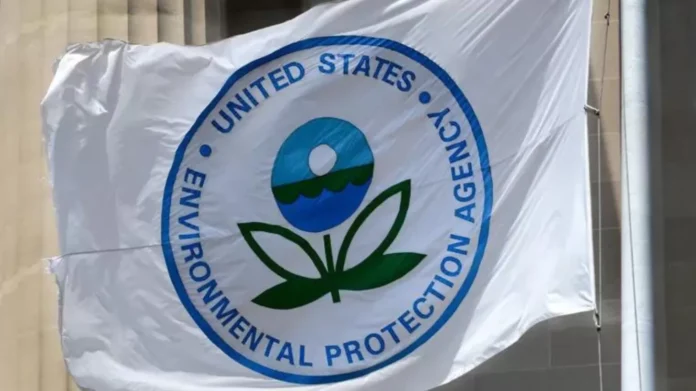In a move to protect public health, the Biden administration announced on Tuesday a ban on most uses of the toxic chemical, methylene chloride, commonly used as a paint stripper. This decision comes after years of advocacy from health and environmental organizations, who have been pushing for stricter regulations on the use of this dangerous chemical.
Methylene chloride, also known as dichloromethane, is a colorless, volatile liquid with a sweet aroma. It has been widely used in various industrial and household products such as paint strippers, adhesives, and cleaning agents. However, it is also a known carcinogen and has been linked to several health issues, including liver, lung, and breast cancer, as well as neurological disorders.
According to the Environmental Protection Agency (EPA), long-term exposure to methylene chloride can cause cancers of the liver, lung, breast, brain, blood, and central nervous system. Additionally, short-term exposure to high levels of this chemical can lead to respiratory problems, dizziness, and even death. Shockingly, at least 88 deaths have been reported since 1980 due to short-term exposure to methylene chloride.
This ban, which will be enforced by the EPA, will restrict the use of methylene chloride in paint strippers, with the exception of certain approved uses, such as industrial applications where protective measures can be implemented. This means that consumers will no longer be able to purchase methylene chloride-based paint strippers for use in their homes.
The decision was met with praise from health and environmental organizations across the country. According to Dr. Linda Birnbaum, former director of the National Institute of Environmental Health Sciences, “This is a major step towards protecting public health from the dangers of methylene chloride.” She also added that “The EPA is taking necessary action to prevent unnecessary exposure to this toxic chemical.”
The ban on methylene chloride is not new to the Biden administration. In 2019, then-congressman Joe Biden co-sponsored the “Alan Reinstein Ban Asbestos Now Act,” which would have banned the commercial production and use of asbestos, another harmful chemical. This act was named after Alan Reinstein, who died of mesothelioma, a type of cancer caused by asbestos exposure. The bill, unfortunately, did not pass, but it was a step towards addressing the issue of harmful chemicals in everyday products.
The new ban on methylene chloride is a positive step towards protecting public health, especially for workers who are constantly exposed to this chemical in their line of work. The Occupational Safety and Health Administration (OSHA) has also recognized the dangers of methylene chloride and has established stricter guidelines for the use of this chemical in the workplace.
Moreover, this ban will also have a significant impact on the environment. Methylene chloride is known to contribute to air pollution and can contaminate water sources. By restricting its use, the Biden administration is taking a proactive approach towards preserving our environment for future generations.
Some critics argue that this ban will negatively impact small businesses that heavily rely on methylene chloride-based products. However, it is crucial to prioritize public health over commercial interests. There are many alternative and safer options available in the market, and it is the responsibility of businesses to switch to more environmentally friendly and less harmful products.
In conclusion, the Biden administration’s decision to ban most uses of methylene chloride is a significant step towards protecting public health and the environment. This move sends a strong message that the government is committed to regulating hazardous chemicals and ensuring the safety and well-being of its citizens. Let us hope that this ban will serve as an example for other countries to follow and make our world a safer place for everyone.

